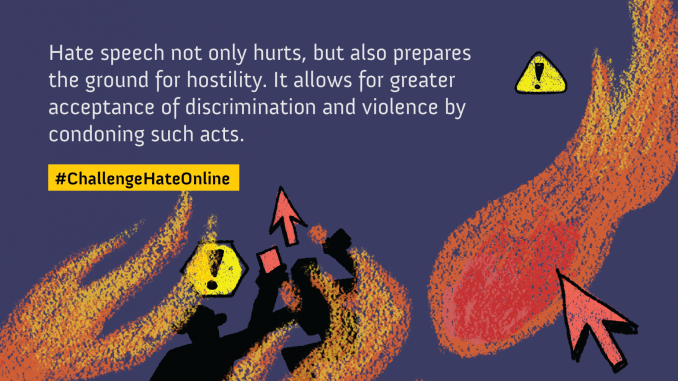
The United Nations has declared 18 June to be the International Day for Countering Hate Speech. Bytesforall Bangladesh participated the online campaign (#challengehateonline) organized by APC to mark the first such day this year.
In the context of an increase of hate speech, particularly in the online environment, it is important to understand its implications, how it affects vulnerable communities and ways to counter it. Although there is no globally accepted definition of hate speech, it is usually understood as any kind of expression that promotes hatred, discrimination or violence against a person or a group on the basis of their religion, ethnicity, race, caste, gender or other identity factor. Hate speech has serious consequences for those targeted, especially vulnerable communities, often resulting in discrimination, hostility and violence. It dehumanizes and “others” persons or groups of people, often consigning them to dangerous stereotypes that are used to justify discrimination and violence against them.
Like many other countries, in Bangladesh, social media is often used to mobilize hatred by powerful, well-resourced and coordinated groups. We sat down with Barrister Jyotirmoy Barua to understand the legal framework in Bangladesh with regard to online hate content creation and promotion. Barrister Barua has been a legal activist and supported several victims of online hatred and violence through his legal services. He also explained the options and support system that anyone can seek for in case someone is affected by online/offline hate speech.
